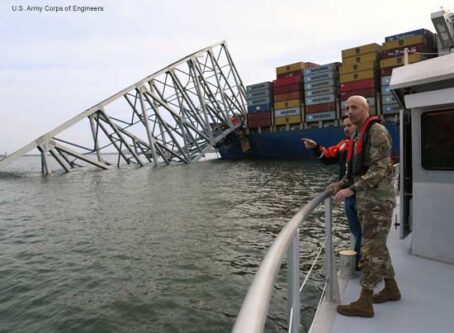Trucking companies sued for not including nonmandatory safety systems
A federal judge in Pennsylvania recently ruled a lawsuit against a truck leasing company and Navistar will proceed. The lawsuit blames the companies for a crash by claiming it was the result of the lack of safety systems on the truck, including collision warning and automatic braking.
On Feb. 24, Judge Kim R. Gibson of the U.S. District Court in Pennsylvania denied Rush Truck Centers of Virginia’s motion to dismiss a lawsuit against it, Navistar and others.
The lawsuit claims that Navistar and Rush are liable for a crash with a motorcyclist, John Paul Shimmel.
Specifically, the companies were negligent by not including non-mandatory safety systems in the truck.
According to the amended complaint, Shimmel was riding his motorcycle on Pennsylvania Route 322 in September 2017. Wei Jang was driving a Navistar truck for Richmond, Va.-based Express Light Trucking, which leased the truck from Rush, going the opposite direction on Route 322.
Jiang was unable to stop the truck soon enough after a vehicle in front of him stopped, causing a crash. Consequently, the truck entered oncoming traffic. Shimmel laid down the bike to avoid a collision with the truck. While sliding on the pavement, Shimmel ran into a guardrail, resulting in severe injuries.
In June 2018, Shimmel filed a lawsuit against Navistar, Rush Truck Centers of Virginia, Rush Truck Leasing, Express Light Trucking, Jiang and Sealand Foods, which hired Express and Jiang. The lawsuit accuses Navistar and Rush of strict liability and product negligence. The remaining defendants are accused of negligence.
Strict liability claims allege that Rush and Navistar were responsible for designing, manufacturing, marketing, selling, leasing and supplying the truck. Those factors allegedly led to the crash by:
- Truck design not including sufficient manner and means to reduce the likelihood of frontal collisions.
- Failing to market the truck with a forward collision warning system.
- Truck lacked “necessary” safety systems, including collision warning and automatic braking systems to alert the driver and slow the truck.
- Failing to lease the truck with safety systems.
- Failing to provide “necessary” warnings so that purchasers would be aware of the importance of forward collision warning systems.
Product negligence claims accuse Navistar of failing to offer or include as standard equipment “appropriate and reasonable alternative” safety features. Furthermore, Shimmel claims Navistar was negligent by failing to market safety systems “to make them affordable and attractive to purchasers.”
“Defendant Navistar made careless corporate business decisions to enhance profits by only offering necessary and reasonable collision avoidance systems as optional equipment,” the lawsuit claims. “Defendant Rush made careless corporate business decisions to minimize expenses by failing to purchase a necessary and reasonable collision avoidance system that was offered by defendant Navistar as an option on the truck.”
Additionally, Rush is being accused of not informing Express of the availability of comparable trucks with collision avoidance systems.
Jiang, Express and Sealand Foods are accused of negligence for failing to keep a proper lookout, failing to slow or bring the truck to a stop and failing to minimize the risk of a collision. Claims regarding safety systems were not included.
Jiang and Express filed a cross-claim against Navistar and Rush, suggesting the two hold the burden of responsibility. On the same day, Rush filed a counterclaim against Jiang and Express. Rush claims Express agreed to “defend, release, indemnify and hold Rush Truck Leasing and its insurers harmless from and against any loss or liability arising from any claim or cause of action for death or injury” per the contract. Navistar also filed a counterclaim against Jiang and Express, alleging they are liable for the crash.
Rush moved to have the case dismissed in August.
Firstly, Rush argued there was never a defect in design. Even if there were, Rush contended that is on Navistar, the manufacturer, not the seller.
Furthermore, Rush claimed it has no duty to offer or market all available or conceivable safety systems.
“The terminology used in plaintiff’s amended complaint can only be described as a creative attempt to re-word claims and theories that have all been rejected in previous cases,” Rush stated in its motion to dismiss.
However, the court was not persuaded.
“Because the truck was unreasonably dangerous by virtue of its defective condition–not having collision avoidance and similar systems – and because Rush is in the business of supplying products for public use, Rush is subject to strict liability,” Judge Gibson said.
Regarding defectiveness, Gibson said a product can be proven defective in two ways. First, the danger is unknowable and unacceptable to an average or ordinary consumer. Second, a reasonable person would conclude that the likelihood and severity of harm the product may cause outweighs the burden of taking precautions.
“A reasonable person could plausibly conclude that installing those systems on the truck was less burdensome than the potential for harm of not installing those systems,” Gibson said.
All defendants must now face all the claims in the lawsuit, which will proceed.









